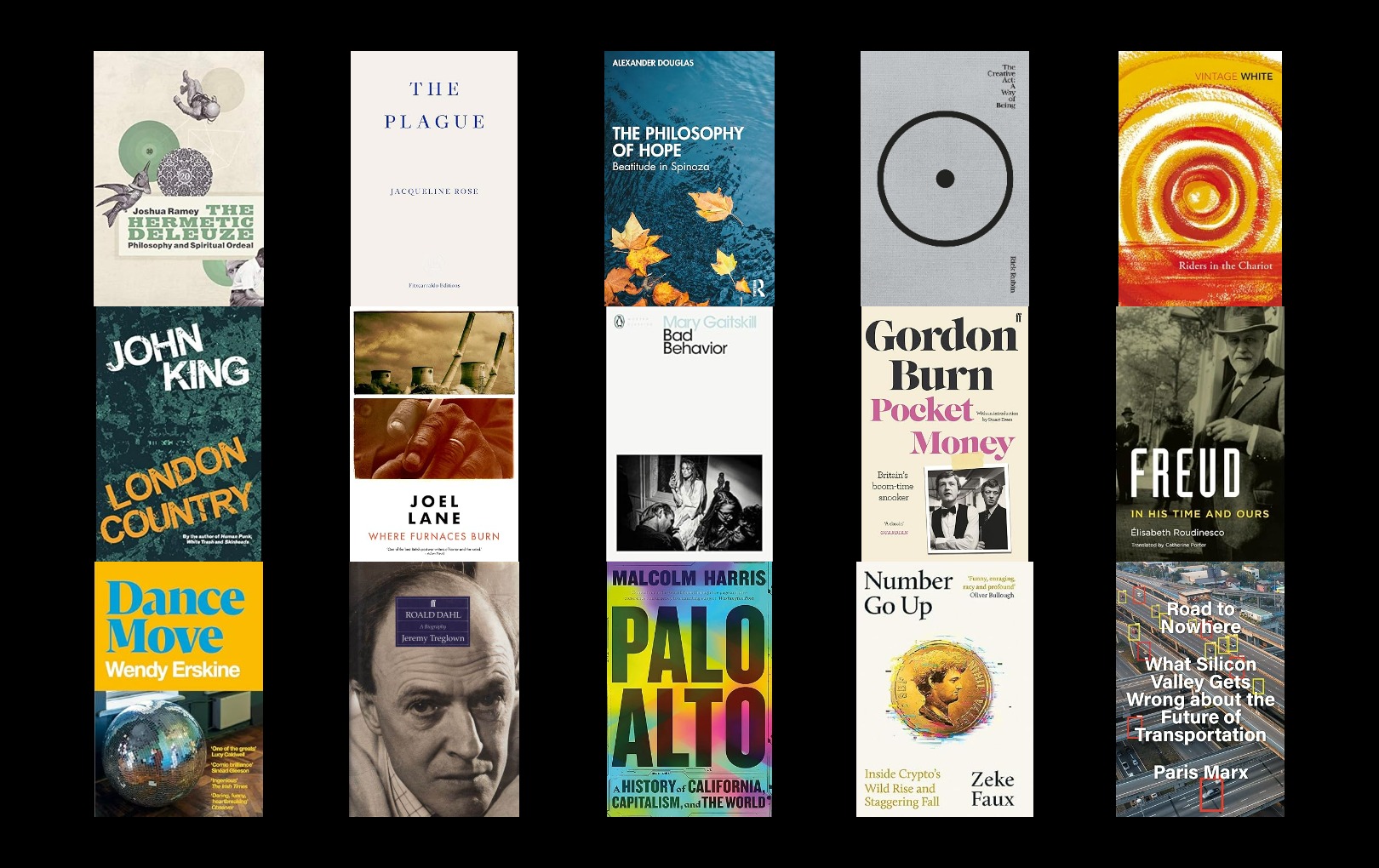
Brad Evans: I Know I Will Never Write a Better Book
If the measure of writing is to get as close as we can to the truth of existence, I know I will never write a
Is the rise of technology strengthening capitalism or tearing it down? Dawn Foster reviews two new books – PostCapitalism, by Paul Mason and The Evolution of Everything, by Matt Ridley.
This piece is from the Winter 2015 issue of New Humanist magazine, which is out now. Reposted with permission.
In 2008, as Lehman Brothers collapsed, Paul Mason was weaving between the limos, satellite trucks, sacked bankers and bodyguards outside the headquarters in Wall Street. Mason was then economics editor at BBC’s Newsnight: his cameraman wanted to film him “amidst the chaos”. Mason’s latest book, PostCapitalism: A Guide to Our Future, written seven years on, argues that capitalism as an idea is bloated and exhausted, with little power left to continue.
Mason’s argument rests on the belief that the rise of technology – specifically computers and social media – has undermined traditional capitalist structures. He writes about the emergence of the “networked individual” permanently plugged into the internet, easily able to organise online and grasp complex theories due to immediate access to knowledge. Twinned with the catastrophes of the global banking crisis, climate change and a looming demographic time bomb, this is triggering a transformation from capitalism to “post-capitalism”.
Matt Ridley, in his second book, The Evolution of Everything, argues that the theory of evolution can be applied to almost every structure and concept in the world: the economy, education, government, religion, money and many others. In contrast to Mason, Ridley insists the major calamities of history are small bumps on the path to a better society, with the fittest arguments and theories surviving. Ridley emphasises the role of chance in human society. This handily gives mechanisms and institutions that inflict suffering and heighten inequality a benign veneer that absolves them of responsibility for the outcomes.
A common thread weaves through both books: that traditional and assumed power is illusory, and that certain social trends are inevitable. Both could be described as techno-utopian in their arguments, albeit from different standpoints. Mason’s almost breathless belief that technology has flattened power has some purchase in the recent events and uprisings he lists: the protests in Egypt’s Tahrir Square and Turkey’s Gezi Park were given more attention through social media and networks facilitated online. A large-scale strike in rural China and student protests in Hong Kong, both in 2014, were organised through social networks. Whether they succeeded completely in undermining authority is harder to determine. Ridley, by contrast, sees the rise of technology as a welcome threat to the power of the state. The public funding of research in universities, for instance, is to be replaced by private money and the influence of the market.
Those warning that the “sharing economy” – where people rent homes, cars, services and other assets directly from each other online or through apps – is a threat to workers, rather than to capitalism, have often been scorned as Luddites. There’s a common misconception that the Luddites were afraid of technology that could have enhanced their work. In fact, the original Luddites were highly skilled workers, who recognised that the employers introducing the machines were prioritising their profit margins, rather than workers’ interests.
Mason is not ignorant of this, and his potted account of the relationship between labour, the economy and technological change is instructive. Yet his optimism sometimes crowds out the downside of the “sharing economy” and the “internet of things”. Wikipedia, the internet encyclopaedia Mason repeatedly cites as an open-source knowledge project that outperforms its competitors, relies on an army of hundreds of unpaid editors across the globe. Fact-checking and scrutinising articles for balance is done patchily. Uber, the taxi app that matches users with freelance drivers, has caused protests in many major cities, as professional taxi companies lose business to the far cheaper service, whose low rates mean low pay, all the while undermining the earning power of established drivers.
It is revealing to read the two books side by side, especially on the concept of money and economics. Mason’s proposals for a fairer society and banking system point out that a universal basic income – a fixed sum paid to every citizen by the state, set at a rate to cover their basic needs – could ameliorate some of the effects the rise of automation has had on the workforce, allowing more people to pursue non-paid work. It would also offer a safety net, so people could avoid being trapped in what the LSE professor and activist David Graeber calls “bullshit jobs”. The idea of a basic income is politically neutral. Free-market economist Milton Friedman proposed it as a way of shrinking the state, for instance. There’s little incentive for Tesco to pay higher wages if all workers are afforded a lump sum to survive on.
Ridley was chairman of Northern Rock from 2004-7, which experienced the biggest bank run in living memory at the end of his tenure. He dealt briefly with this in his first book, The Rational Optimist: How Prosperity Evolves (2010), and while it doesn’t merit a mention this time, it’s clear that he still believes, with bullish confidence, that his economic outlook was and is right. The roots of the 2007-8 financial crash in his view were not speculation, sub-prime loans and a lack of financial oversight in institutions – but over-regulation, red tape and the meddling of government and central banks in the finance industry. This gives Ridley’s arguments a dogmatic tone; a marked contrast to Mason, who is generally regarded as on the left of the political spectrum but is informed and curious enough to explore ideas from a broad range of intellectual traditions.
Both parties skim lightly over the question of inequality, which has become an increasingly fraught topic of political debate since the crash. Ridley, in line with his “evolution” thesis, sees poverty and inequality as both inevitable and desirable. The rich earn their wealth as the poor trap themselves in poverty due to the inevitable battle of the survival of the fittest. Ridley, a Conservative member of the House of Lords, appears to see the uneven distribution and the hoarding of wealth as forms of natural selection. High achievers breed high achievers, for instance, “because of genetics”. Mason is more nuanced, considering factors such as “brain drain” migration of skilled workers from poor countries to richer ones. However, his focus on the networked individual as “the new working class” overlooks the fact that most of the educated young individuals described would be from the middle class. The working class still exists, and has suffered from a stagnation in wages. Wealth inequality in many countries, including Britain, has skyrocketed in recent years but the corrosive effects this has on individuals and communities are largely unexplored in these books.
Mason’s proposals for a new economy and society are more convincing than Ridley’s cheerleading for freer free markets. But crucially, Mason’s arguments rely on a belief that the networked individual can force institutions to give up power and reform financial systems and the labour market. Most protest movements that started after the crash have fizzled out, although many (notably Occupy Wall Street and UK Uncut) have succeeded in changing the way in which many ordinary people think about finance and the government’s role in financial regulation. Yet it’s not only protest movements that have access to new technology: the most networked of all are the very wealthy and the businesses they run. Capitalism’s ability to use every shift in technology to increase profits and decrease wages should never be underestimated. Ridley and Mason, with different viewpoints, consider the positive and benign possibilities of technology’s effect on the economy. We would do well to remember the possible pitfalls, too.

If the measure of writing is to get as close as we can to the truth of existence, I know I will never write a

To accompany his latest piece with Tariq Goddard in The Quietus on True Detective Season 4 and the legacy of In The Dust of This Planet, Eugene

As another turbulent year draws to a close, the Repeater team put forward their favourite reads for the festive season. Publisher, Editor, and Author Tariq

If the measure of writing is to get as close as we can to the truth of existence, I know I will never write a

To accompany his latest piece with Tariq Goddard in The Quietus on True Detective Season 4 and the legacy of In The Dust of This Planet, Eugene

As another turbulent year draws to a close, the Repeater team put forward their favourite reads for the festive season. Publisher, Editor, and Author Tariq
